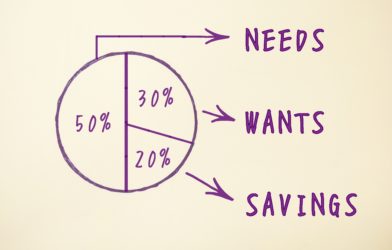If you’re looking to make your money start working for you, you’re probably searching for the best long-term investments. Many people prefer long-term investments since holding investments over a long period of time minimizes the effects of short-term fluctuations. While making smart investment decisions is essential for securing your financial future, it’s not always easy to understand what kind of investments you should make for the long-term.
A long-term investment is an asset such as a stock, bond, or real estate that you intend to retain for at least a year. Frequently long-term investing is viewed through the lens of saving during decades of work to be prepared for retirement.
The best long-term investment strategy for you will depend on your financial situation. Age, investment goals, and risk tolerance should all be considered when you’re choosing between index funds, individual stocks, real estate, bond funds, and other long term investment options.
Why invest for the long-term?
The longer you keep your money invested, the higher your chances are of making gains. According to Nutmeg’s analysis of historical market returns, investing for a single year would result in gains 72.7% of the time while investing for ten years meant a 94.15% chance of making money. On the other hand, investing for just one day would be a nearly 50/50 chance of making or losing money.
Moreover, long-term investments are essential for anyone who wants to achieve financial security in the future. They allow you to ride out the market dips without locking in losses by selling, and let you enjoy the gains when the market is on an upswing. On the other hand, keeping money in cash leaves it vulnerable to losing value due to inflation.
What are the benefits of long-term investments?
Long-term investments are a great way to grow your money over time. Here are some benefits of long-term investments.
Better long-term returns than cash
Over time, the stock market has generated better returns than most other investments, and helps you grow your money instead of losing it through inflation. If you’re investing for the long term, you’re more likely to see your money grow and give yourself a better chance to see positive returns.
Time to ride out market fluctuations
The stock market can be volatile and prices can go up and down quickly, sometimes making you feel like you’re on a rollercoaster ride. You’re more likely to ride out these market fluctuations and ultimately come out ahead if you keep your money in the market and focus on long term growth.
You don’t need to watch the market closely
You don’t need to watch the market as closely and will not be affected by short-term changes in the market. This can help you avoid making decisions based on emotions, which can lead to bad investment choices.
Higher risk tolerance
You can take more risk investing long-term because you will have time to recover from any losses early in your investing journey. Because of the long time horizon, it is common to have a more aggressive investment strategy when you’re younger and become more conservative as you are approaching retirement.
Opportunity to buy stocks when prices are low
Long-term investors can buy stocks when prices are low and then sell them later when the prices have increased. This investment strategy is known as dollar-cost averaging and can help you maximize your returns.
Compounding returns
One of the most powerful benefits of long-term investing is compounding returns. This is when your earnings from investments are reinvested and then earn even more money. Over time, this can lead to exponential growth in your portfolio.
Diversification
Another benefit of long-term investments is the ability to diversify more over time as your capital grows. With a well-diversified portfolio, you spread your risk among different investment products.
What are the best types of long-term investments?
The best long-term investments include stocks, bonds, and real estate.
Stocks
Stocks are ownership shares in a business that can be purchased and sold on stock exchanges, making you a shareholder when you buy them. They are the most popular choice for long-term investments and can offer the potential for high returns.
- Dividend stocks: Dividend stocks are stocks that pay out regular dividends to shareholders and offer both stability and growth potential. An example of a dividend stock is Johnson & Johnson, which has increased its dividend payments for 57 consecutive years.
- Growth stocks: Growth stocks are the ones that grow faster than the overall market, although they tend to be more volatile. An example of a growth stock is Amazon, which has seen its share price increase significantly in recent years.
- Value stocks: Value stocks are stocks trading at a price below their intrinsic value and offer investors the potential for high returns. An example is Walmart, which is often considered a value stock.
Long-term bonds
Bonds are a debt investment, which means you’re lending money to an entity in return for interest payments. These types of investments are less likely to be volatile than stocks, making them one of the best long-term investments.
Mutual Funds
Mutual funds are a portfolio of assets like stocks and bonds that can be actively managed stock funds or passively managed index funds. Mutual funds allow investors to diversify their portfolios while also benefiting from professional management.
- Stock funds: A stock or equity fund is a fund that invests mainly in stocks. This allows investors to purchase a portfolio of stocks more quickly than they could purchase individual securities, and with the benefit of professional management and rebalancing.
- Index Funds: These mutual funds track a specific benchmark index, such as the S&P 500 or the Nasdaq 100. Investing in an index fund means investing your money in all the companies that make up the index, giving you a more diverse portfolio than buying individual equities.
- Bond Funds: A bond fund, also called a debt fund, is a pooled investment option that mainly invests in bonds, such as convertible, municipal, corporate, and government bonds. This also includes other debt instruments like mortgage-backed securities. Bond funds may offer lower returns than stock funds but tend to be less volatile and better for investors with lower risk tolerance.
- ETFs: Exchange-traded funds (ETFs) are investments that own a basket of assets, such as stocks or bonds, and trade on an exchange, very similar to mutual funds. Exchange-traded funds allow investors to mix up their portfolios with only a single investment, and benefit from lower fees and purchase minimums than mutual funds.
Real Estate
Real estate investments offer both stability and growth. While there is a higher risk and more time required when you invest in real estate, it can be a great way to build wealth over time.
One example of a real estate investment is a rental property. By owning a rental property, you can generate income from rent payments and benefit from any appreciation of the property’s value. And since transaction costs are typically only paid by the seller during real estate transactions, real estate investments can be more profitable when held for the long term.
If being a landlord seems too complicated or risky, you can also invest in real estate investment trusts (REITs) which are available at most brokerage services.
Final Thoughts
Long-term investing is a good choice for people looking to grow their money. The best investment strategy will depend on your financial situation and goals. This is why a certified financial planner can help you create a diversified portfolio that meets your needs.
No matter what investment option you choose, remember that patience is vital in long-term investing. The best long-term investments are held for years or decades, not days or weeks. So, if you’re looking to invest for the long term, be patient and don’t let short-term fluctuations discourage you from reaching your investment goals.












